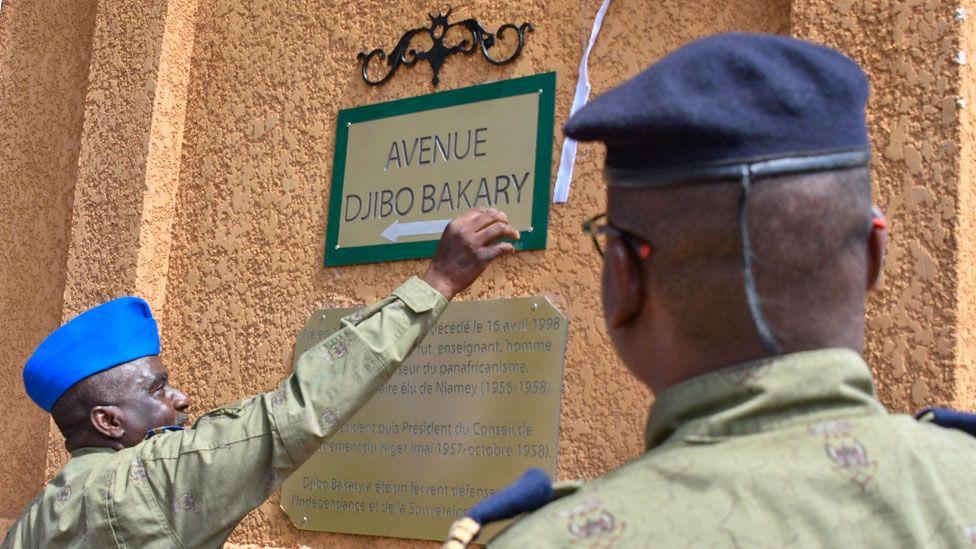Niger’s military government has taken significant steps to sever ties with its former colonial power, France, by renaming streets and monuments that previously honored French figures. A notable change includes transforming Avenue Charles de Gaulle in the capital, Niamey, into Avenue Djibo Bakary, commemorating the Nigerien politician pivotal in the country’s independence struggle. Major Colonel Abdramane Amadou, the junta’s spokesperson, emphasized that many of the streets in Niger serve as reminders of the oppression endured during colonial rule, pointing to a broader pursuit of reclaiming national identity and historical narrative.
The shifting relationship between Niger and France has accelerated since the ousting of President Mohamed Bazoum in a coup last year. Amid waning ties with Western allies, Niger has aligned itself more closely with Russia for military assistance in the face of a rising jihadist threat. This trend mirrors that of other military-led nations in the Sahel region, such as Mali and Burkina Faso, which have collectively established the Alliance of Sahel States. Under Bazoum’s administration, France maintained a military presence of over 1,500 troops in Niger to combat jihadist groups associated with al-Qaeda and Islamic State; however, these forces withdrew entirely by the end of last year.
In a recent ceremony celebrating the name changes, Niger unveiled new dedications in Niamey, which included alterations to a war memorial previously honoring the sacrifices of World War I and World War II. The memorial has now transformed to honor all victims of colonization, both military and civilian, extending recognition to those who have suffered under past injustices. The historical context is significant; Charles de Gaulle, once memorialized, was a key figure during World War II, leading the French resistance against Nazi occupation—a fact that complicates the legacy of colonialism in Africa.
As part of its reevaluation of colonial history, France has itself begun to rename some of its streets in honor of African heroes from World War II, reflecting a growing acknowledgment of the contributions made by African soldiers during the war. Many Africans, particularly from France’s colonies, enlisted or were conscripted to fight alongside the Free French Forces. Approximately 400,000 soldiers from North African regions and over 70,000 from sub-Saharan Africa played crucial roles in liberating France from Nazi control. This juxtaposition emphasizes the historical complexities surrounding Africa’s anti-colonial struggles and the fight against fascism.
In Niamey, further modifications include the removal of a monument dedicated to Parfait-Louis Monteil, a French colonial officer and explorer. His image has been replaced by a tribute to Thomas Sankara, a revered revolutionary leader from Burkina Faso known for his pan-Africanist stance and anti-imperialist policies. Sankara’s legacy challenges the long-standing French influence in many African nations and stands as a symbol of resistance against neocolonialism. These changes in public commemorations are significant as they reflect a broader movement towards reclaiming agency and identity in the region.
The renaming of Place de La Francophonie to Place de l’Alliance des Etats du Sahel marks another substantial departure from colonial symbols. This move reaffirms Niger’s newfound partnerships with Burkina Faso and Mali, underscoring a collective regional identity. As Niger navigates its post-colonial landscape, these actions serve not only as a rejection of colonial legacy but also as an affirmation of a future shaped by regional cooperation and a desire for sovereignty. The developments in Niger are indicative of a wider trend across former colonies reevaluating their colonial pasts while forging new paths forward in an era marked by geopolitical shifts.

